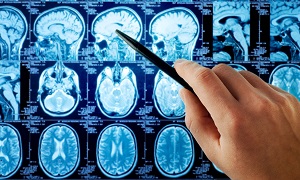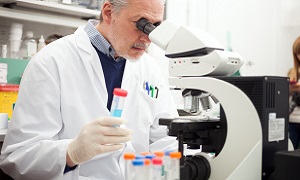Best Doctors in India for Craniosynostosis Treatment
Best Hospitals in India for Craniosynostosis Treatment
Hospital Highlights:
- Apollo Hospitals is a private healthcare group in India, with its headquarters based in Chennai. Established in 1983 by Dr. Prathap C. Reddy, the group offers a wide range of medical treatments and services across various specialties.
- It is renowned for emphasizing innovation and utilizing cutting-edge medical technologies into patient treatment.
- Known as India’s first corporate hospital, Apollo Hospitals is often credited for pioneering the private healthcare revolution in the country.
- With clinics and hospitals located all throughout India, Apollo Hospitals is a nationwide healthcare organization. Its presence can also be found in foreign countries.
- Preventive health examinations, medical and surgical treatment, and diagnostic centres are just a few of the services that the Apollo group provides.
- The group has several centres of expertise, including Cardiac Sciences, Neurosciences, Orthopedics, Emergency Care, Cancer Care, and Organ Transplantation.
- City: Chennai, India
Hospital Highlights:
- RIMC is a multi-specialty hospital in a sprawling area of 36 acres located in Chromepet, Chennai, Tamil Nadu, India.
- The facility has 450 beds including 130 critical care beds, 9 operating rooms, modern reference laboratories and radiology services, and is conveniently located near road, rail and air transportation.
- RIMC is led and managed by world-renowned physicians committed to healthcare.
- RIMC offers the broadest range of clinical care, education, and research. The hospital offers state-of-the-art technology and modern treatment facilities designed to provide health care at an affordable cost.
- Rela Institute is driven by patient needs, comfort and confidence.
- City: New Delhi, India
Hospital Highlights:
- Fortis Hospital in Shalimar Bagh is a multi-super specialty hospital that strives to provide world-class patient care by leaving no stone unturned.
- Fortis, Shalimar Bagh, with 262 beds and a 7.34-acre footprint, provides the best level of medical care through its team of doctors, nurses, technicians, and management professionals.
- City: Bengaluru, India
Hospital Highlights:
- Established in 2007, the Apollo Hospitals Bangalore is a 300-bed multispecialty hospital situated in Bannerghatta Road, Bangalore.
- Equipped with the state-of-the-art technology, it is a leading hospital dedicated to providing healthcare needs to patients with compassion and expertise.
- It is the first hospital to have completed the highest number of Robot Assisted Heart Surgeries in India.
- Over the years, it has successfully conducted some of the rarest medical procedures such as spinal angiolipoma excision, autologous chondrocyte implantations, and tibial tuberosity shift with MPSL reconstruction.
- The Apollo Hospitals Bangalore has the reputation of performing the greatest series of airway stents in the country.
- Additionally, the hospital is known for providing comprehensive treatment in specialties such as gastroenterology, urology, gynecology, oncology, colorectal surgery, etc.
- The “The Minimal Access Surgery Centre” (MASC), one of Apollo Hospitals, Bangalore’s premier Centres of Excellence, is devoted to the use of minimally invasive surgical procedures.
- In 2013, THE WEEK-A C Nielsen, Best Hospital Survey ranked Apollo Hospitals Bangalore as the 2nd best multi-speciality hospital in Bangalore.
- City: Mumbai, India
Hospital Highlights:
- Gleneagles Global Hospital The 450-bed facility comprises of 17-stories, housing state-of-the-art infrastructure, and advanced medical care facilities.
- The hospital offers end-to-end clinical, surgical, and diagnostic services. It is equipped with a team of eminent medical professionals aided by qualified nurses and medical staff
- The Hospital offers advanced Endoscopic procedures, Hepatobiliary and Liver Surgeries, Surgical and Medical Gastroenterology, Bariatric Surgery, and Robotic surgery.
- The hospital is a center of excellence for Orthopedics, Joint Replacement, Knee Replacement, and Hip Replacement surgery.
- City: Hyderabad, India
Hospital Highlights:
- CARE Hospitals were established in the year 2000, by CARE Group.
- The multispecialty hospital has 435 beds, including 120 critical care beds, with an annual inflow of 180000 outpatients and 16,000 in-patients.
- The hospital provides specialty medical services in Cardiology, Cardiothoracic Surgery, Pediatric Cardiology, Pediatric Cardiothoracic Surgery, Neurology, Neurosurgery, Nephrology, and Urology.
- The hospital has the first dual source, 128 slice CT scanner (for high precision cardiac imaging) – the first of its kind in south India.
- The hospital offers a wide range of accommodation facilities for the convenience of its varied patient base, ranging from general wards to super deluxe rooms.
- City: Mumbai, India
Hospital Highlights:
- Fortis Hospital in Mulund is a 315-bed multi-speciality tertiary care hospital with five JCI accreditations that offers a wide variety of diagnostic and treatment services. The Fortis Hospital in Mulund delivers patient-centred treatment with cutting-edge technology, highly skilled and experienced surgeons, and paramedical staff.
- This institution houses Maharashtra’s largest multi-organ transplant centre. It is also the first heart transplant centre in western India to conduct 100 or more consecutive heart transplants in under four years. It is the only hospital in the city to have multi-organ transplants and has handled the youngest patient for angioplasty. Fortis Hospital Mulund now boasts the first advanced surgical robot in central Mumbai.
- Cardiology and heart surgery, urology, nephrology, neurosciences, orthopaedics, digestive care, emergency and critical care, and maternity care are among the services provided by the hospital.
- City: New Delhi, India
Hospital Highlights:
- Manipal Hospitals, Dwarka, is a super-specialty hospital in Dwarka, New Delhi, which is a part of Manipal Hospitals Group.
- The hospital aims to provide the best treatment on par with international standards at a fraction of the cost.
- Equipped with 380 beds, the hospital is also one of the new age hospitals which are equipped fully with state-of-the-art infrastructure, cutting-edge technology as well as the latest and advanced clinical practices. The hospital also has 13 modular Operation theatres with 118 beds which are solely meant for critical care.
- The hospital comprises internationally acclaimed doctors and highly professional and experienced hospital and medical staff who are able to provide preventive, therapeutic, and diagnostic services all under one roof.
- City: Chennai, India
Hospital Highlights:
- Located in Chennai, India, MGM Healthcare is a top multispecialty hospital that provides all medical services under one roof.
- Since its founding in 2019, MGM Healthcare has quickly become a leading national referral centre, creating several innovative flagship initiatives.
- MGM Healthcare combines next-generation medical and digital technologies to provide better patient results.
- With 12 centres of excellence, more than 400 inpatient beds, 100 intensive care unit beds, and 24/7 emergency care, MGM Healthcare leaves no chance in redefining the patient experience in Chennai.
- MGM Healthcare boasts 250+ expert doctors across 30+ departments, including Cardiology, Pulmonology, Neurology, Obstetrics & Gynaecology, and more.
- They house 12 specialized Centres of Excellence, including Neurosciences, Orthopaedics, and Multi-Organ Transplantation.
- Their team of doctors, nurses, and paramedics works together to give every patient individualized treatment.
Hospital Highlights:
- Lilavati Hospital & Research Centre is India’s premier multi-speciality tertiary care hospital and has been recognised as a global medical excellence centre.
- Lilavati Hospital & Research Centre has built an unrivalled level of trust with its patients over the years, thanks to a solid foundation that comprises cutting-edge facilities, the best medical competence, research, education, and charity endeavours.
- The hospital is quite proud of the fact that it now serves patients from all kinds of backgrounds, not just from the United States but from all around the world.
- The hospital has a total of 323 beds, one of the largest Intensive Care Units (ICUs), 12 Operation Theatres with modern amenities, over 300 consultants, and almost 1,800 personnel.
CRANIOSYNOSTOSIS
Craniosynostosis is a birth defect which involves one or more of the fibrous joints between the bones of the skull of the baby closing prematurely before the brain of the baby is fully formed. As brain growth continues, the head takes a misshapen appearance.
During infancy, the sutures normally remain flexible, which gives the baby’s brain time to grow. In the front of the skull, the sutures meet in the large soft spot on the top of the head. The anterior fontanel is the soft spot that one can feel just behind the forehead of the baby. The next largest is at the back or the posterior. Each side of the skull consists of a tiny fontanel.
Craniosynostosis generally involves the premature fusion of a single cranial suture, though sometimes it can involve more than one of the sutures in your baby’s skull. However, rarely, craniosynostosis can also be caused by the certain genetic syndrome.
Symptoms
Craniosynostosis can generally have the following signs:
- An unusual feel to the fontanel, or a soft spot on the infant’s skull
- A distorted shape in the skull
- The hard ridge forming along the suture, which is going to depend on the type of craniosynostosis
- Early disappearance of the fontanel
- Slower growth in the head as compared to the rest of the body
A newborn may have no signs or symptoms, but the condition can get noticeable during the first months of life.
A pediatrician can measure the head of the infant, and monitor their growth at every visit during the first year of life. This is done to spot this kind of condition.
Causes & risk factors
In most cases, the causes of craniosynostosis are not known. However, in many cases, it is related to genetic disorders.
Nonsyndromic craniosynostosis: This is known to be the most common type of craniosynostosis, its cause is yet unknown. However, it is believed to be a combination of genes as well as environmental factors.
Syndromic craniosynostosis: This is caused by certain genetic syndromes, like Apert syndrome, Crouzon syndrome, or Pfeiffer syndrome, which can affect your baby’s skull development. Usually, these syndromes include other physical features as well as health problems.
Diagnosis
Physical exam
Imaging studies
Genetic testing
Treatment
Conventional surgery
A craniofacial surgeon is a surgeon with a specialization in head and facial surgery as well as surgery of the jaw. A neurosurgeon is a surgeon who specializes in the brain and the nervous system.
A general anesthetic is going to be used during the procedure, and therefore the infant is not going to feel any pain.
The neurosurgeon will first create an incision across the top of the infant’s scalp and he/she will remove the areas of the skull that have become misshapen.
The craniofacial surgeon is then going to reform these sections of the skull after which he/she is going to place them back in the head. Then they sew up the opening with the help of dissolvable stitches.
This process can take several hours. The child is going to need to stay in the hospital for few days after the procedure. Although there is going to be a swelling in the face, this is not a need of concern.
Sometimes further surgery might be required, reshape the face, or if the craniosynostosis reappears.
After the procedure, a health professional is going to monitor the child’s skull development.
Endoscopic surgery
This option is less invasive, as compared to conventional surgery. In this procedure, your doctor will first create two tiny incisions in the scalp. He/she will then cut the sutures with the help of an endoscope. This is a flexible tube which the surgeon can use to check the inside of the body during the surgery.
This type of surgery is not just quicker, but it causes lesser bleeding and swelling. However, it is suitable only in certain cases, depending on the location of the fused suture.
Endoscopic surgery is suitable before the infant is of three months of age when the bones are still soft.
After surgery, the child may still require a molding helmet as it will help the head to grow into a suitable shape.
Complications
If left untreated, craniosynostosis can lead to multiple complications, which include the following:
- Permanent head and Facial deformity
- Social isolation and poor self-esteem
If left untreated, increased intracranial pressure can lead to the following:
- Developmental delays
- Seizures
- Cognitive impairment
- Eye movement disorders
- No energy or enthusiasm
- Blindness
- Death, in rare cases














